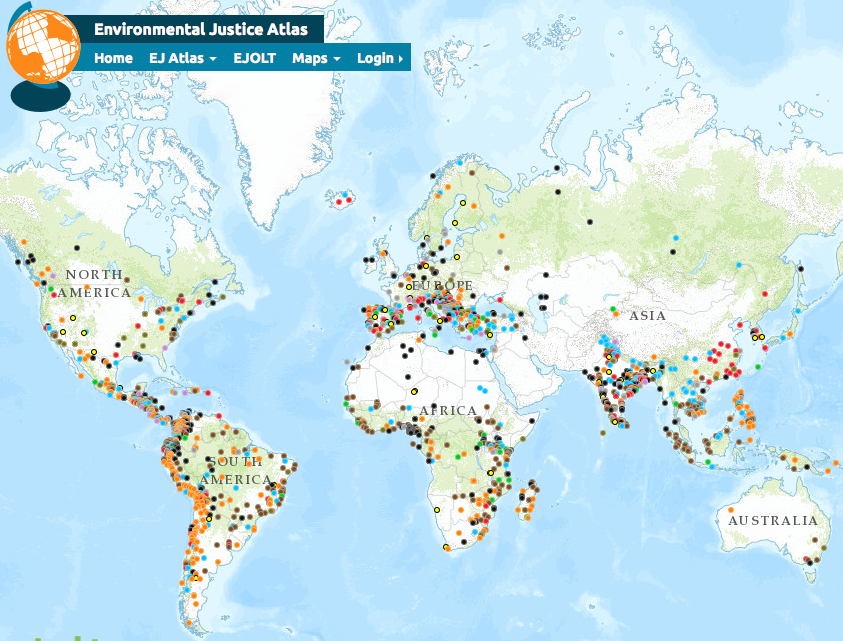Exploring and enhancing environmental justice (EJ), including contributing Australian case studies to the international EJ atlas.
The Australian Environmental Justice (AEJ) research team at RMIT University is creating a public online database of cases of environmental injustice — for affected communities, campaigners and educators.
The AEJ project has Friends of the Earth (FoE) Australia as a partner and is associated with the EU-funded international Environmental Justice Organisations, Liabilities and Trade (EJOLT) project.
The EJOLT project is a scholar–activist collaboration — between universities and environmental justice organisations (such as FoE) — that started collecting environmental case study data in 2012 to share and use for campaigning, advocacy, education and conflict resolution.
Details of cases are promoted, updated and accessible from the international Environmental Justice Atlas. The EJAtlas is an interactive database allowing users to filter and draw out information by country, commodity (such as timber, coffee or bauxite), company (private firms and state agencies, impact type, type of disadvantaged community/demographic, type of environmental protest/strategy, form of resolution — and more. All data includes sources and author details, along with URLs to UTube and other audiovisual and print material.
See Australian cases.
By working with FoE campaigners, engaging with affected communities and drawing on EJOLT research and resources , in the next stage AEJ plans to develop fact sheets and reports that will include international benchmark practices and policies to assist impacted communities. The team will focus on activities such as: supporting collection and analysis of community experiential evidence; recommending preventative measures and improved standards in environmental policy and regulation; and, establishing safer sector and industry practices from criteria for development approval to monitoring, corporate responsibility, appeals and remedial legislation.
AEJ will synthesise evidence of socio-environmental costs in communities where dangerous conditions, practices and incidents, such as toxic material use and waste, have been significant. Fact sheets and reports will be promoted for teaching, media, public, government and industry purposes too. Damaging impacts can be insidious, emerging in delayed and unexpected ways, and often disproportionately impact on disadvantaged (e.g. low-income, Indigenous) communities poorly positioned to research, advocate and campaign for solutions to environmental risks or damages.
On 13 February 2016 the AEJ team made a two-hour video of six prominent Australian campaigners involved in cases of environmental injustice. Mid-2016 they plan to launch the edited and versions of these talks for campaigning and educational purposes.

Key People
Project Researchers
- Anitra Nelson, Associate Professor, Centre for Urban Research, GUSS
- Lisa de Kleyn, Doctoral Candidate, Centre for Urban Research, GUSS
- Lee Tan, Masters by Research student, Centre for Urban Research, GUSS

